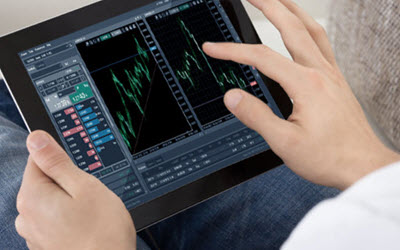With each passing day, financial markets are growing. Whether you are trading stocks, commodities, or currencies, you have realized the expansion in offerings, and traders in all these markets. Investing your money is something you do not do lightly, and you should use all tools and instruments available to you to increase your winnings and decrease your risk.
When the topic comes to forex trading, there are several tools and instruments at your grasp that make for a better trading experience. Forex or Foreign Exchange is the market for trading currency pairings. Traders who participate in forex trading, typically use foreign currency options as their hedging tools, while banks are more likely to use swaps and options and other derivatives to meet their hedging needs and goals. For the average user, here are some of the most common financial instruments that you can use in Forex: Spot Transactions, Forwards, Futures, Swaps, and Options.
- Spot Transaction:
 A spot transaction is an agreement to buy or sell a currency at the current exchange rate. This is pretty much the common and basic way of trading one currency for another. Unlike other instruments which will take longer to settle, this instrument usually settles within two business days. The spot rate is a constantly changing number that moves up and down along with the currency.
A spot transaction is an agreement to buy or sell a currency at the current exchange rate. This is pretty much the common and basic way of trading one currency for another. Unlike other instruments which will take longer to settle, this instrument usually settles within two business days. The spot rate is a constantly changing number that moves up and down along with the currency.
- Forwards:
This form of transaction involves the buying and selling of foreign currency for settlement of no less than three days later, and at predetermined exchange rate. Essentially, the buyer and seller of the stock make a deal to trade a currency at a particular time and at a particular rate of exchange, regardless of the current or ending exchange rate. This contract can range from 3 days to a year in length. Forwards protect the traders for fluctuations of currencies throughout and at the end of a contract. Regardless of what the value of the currency is when you start or end you will receive the fixed amount. These contracts are not traded on exchanges due to a lack of standardization.
- Futures
A future contract is a forward contract with a pre-determined currency amount, maturity date, and interest amount. A futures contract is an agreement between the buyer and seller to buy or sell a currency in a designated future month at a mutually decided price. These transactions usually take 3 months and are standardized and traded on futures exchanges.
- Swap
These are the most common type of forward transactions. A swap is a trade between two parties where they exchange currencies for a pre-determined length of time. This transaction is then reversed at a pre-agreed future date. Two exchanges transpire at different exchange rates, and it is the difference in these two exchange rates that determines the swap price. This is another form of forward contracts where the maturity periods vary from months to decades.
- Options
A currency option is very much like the futures contract, it involves a fixed currency transaction at some future point of time. Currency option gives the seller or holder the right, but not obligation, to either buy from the option writer or sell to the option writer a specified quantity of one currency in exchange for another currency at a fixed rate of exchange. This rate is also referred to as the strike price.
It is worth mentioning that when it comes to options forex market is the world’s deepest largest and most liquid market.
This article was last updated on: June 14, 2018
